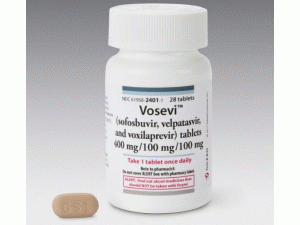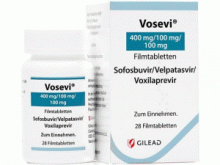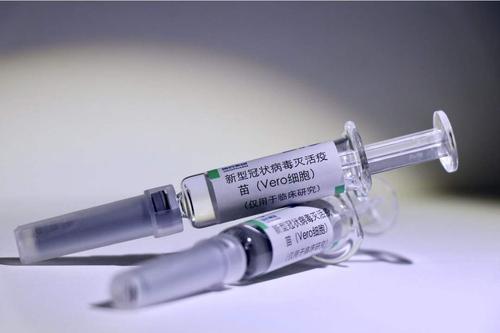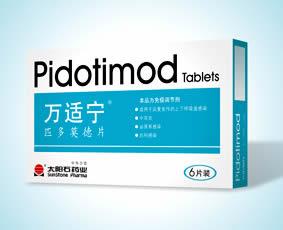索非布韦/维帕他韦sofosbuvir/velpatasvir sof/vel Tablet(Epclusa)说明书
 产地国家:美国
处方药:是
所属类别: 400毫克/100毫克/片 28片/瓶
包装规格: 400毫克/100毫克/片 28片/瓶
计价单位:瓶
生产厂家英文名:Gilead Sciences, Inc
原产地英文商品名:Epclusa Tab 400mg/100mg/tabs 28tabs/bottle
原产地英文药品名:sofosbuvir/velpatasvir
中文参考商品译名:Epclusa复方片 400毫克/100毫克/片 28片/瓶
中文参考药品译名:索非布韦/维帕他韦
曾用名:sof/vel,GS-5816
产地国家:美国
处方药:是
所属类别: 400毫克/100毫克/片 28片/瓶
包装规格: 400毫克/100毫克/片 28片/瓶
计价单位:瓶
生产厂家英文名:Gilead Sciences, Inc
原产地英文商品名:Epclusa Tab 400mg/100mg/tabs 28tabs/bottle
原产地英文药品名:sofosbuvir/velpatasvir
中文参考商品译名:Epclusa复方片 400毫克/100毫克/片 28片/瓶
中文参考药品译名:索非布韦/维帕他韦
曾用名:sof/vel,GS-5816
简介
Epclusa是首款获美国FDA扩展批准治疗丙肝/艾滋病共感染患者新药最近,美国FDA扩展批准其丙肝鸡尾酒疗法Epclusa(sofosbuvir/velpatasvir,400mg/100mg)是一种日服一次的泛基因型丙肝组合药物,用于治疗丙肝/艾滋病毒共感染(HCV/HIV co-infection)患者。Epclusa是首款能够治疗所有丙肝亚型的口服鸡尾酒疗法Epclusa是首个全口服、泛基因型、每日一次单片方案(STR),该药于2016年6月28日获得FDA批准,用于无肝硬化或伴有代偿期肝硬化的全部6种基因型(GT 1-6)丙肝成人患者,以及联合利巴韦林(RBV)用于伴有失代偿期肝硬化的丙肝成人患者。 需要注意的是,Epclusa药物标签中附带有一个黑框警告,该药在丙肝/乙肝(HCV/HBV)合并感染的患者中具有再次激活乙肝病毒(HBV)的风险。批准日期:2016年6月28日 公司:吉利德科学公司EPCLUSA(索非布韦/维帕他韦[sofosbuvir/velpatasvir])片剂,用于口服使用美国初步批准:2016警告:与HCV和HBV相关的患者的乙型肝炎病毒反应的风险见完整的BOXED警告的完整的规定信息。已经报道了乙型肝炎病毒(HBV)的再激活,在某些情况下导致暴发性肝炎,肝功能衰竭和死亡。最近的主要变化BOXED警告:02/2017剂量和管理:02/2017剂量和管理:08/2017警告和注意事项:02/2017警告和注意事项:08/2017 作用机制 EPCLUSA是sofosbuvir和velpatasvir的固定剂量组合,其是针对丙型肝炎病毒的直接作用抗病毒剂[参见MICROBIOLOGY]。 适用范围及用途 EPCLUSA是sofosbuvir,丙型肝炎病毒(HCV)核苷酸类似物NS5B聚合酶抑制剂和velpatasvir,HCV NS5A抑制剂的固定剂量组合,用于治疗慢性HCV基因型1,2,3,4,5或6感染:没有肝硬化或补偿性肝硬化与代偿失调性肝硬化联合利巴韦林 剂量和管理 开始治疗之前的测试:通过测量HBsAg和抗HBc测试所有患者的HBV感染。 推荐用量 每日一次口服一片(400毫克沙夫布韦和100mg维拉帕斯维司),每日口服一次,不论有无食物参见下表中基因型1,2,3,4,5或6型HCV患者推荐的治疗方案和持续时间:患者人口方案和持续时间*在临床试验中,方案包含有或没有HCV NS3/4A蛋白酶抑制剂(波普瑞韦,辛伐他韦或特拉匹韦)的聚乙二醇干扰素α/利巴韦林。治疗无效和治疗经验*无肝硬化和补偿性肝硬化(Child-Pugh A)EPCLUSA 12周治疗无效和治疗经验*代偿失代偿性肝硬化(Child-Pugh B和C)EPCLUSA +利巴韦林12周HCV/HIV-1共同感染:对于HCV / HIV-1共感染患者,按照上表中的剂量建议不能对严重肾损伤或终末期肾病患者进行剂量推荐剂量 形式和强度 片剂:400毫克和100mg 禁忌症 对于利巴韦林禁忌的患者,EPCLUSA和利巴韦林组合方案禁忌。 警告和注意事项 乙型肝炎病毒反应的风险:在开始HCV治疗之前,测试所有患者的HBV或HBV感染现象。在HCV治疗和治疗后随访期间监测HCV/HBV合并感染患者HBV再激活和肝炎闪光。针对HBV感染启动适当的患者管理。胺碘酮联合给药的心动过缓:严重的症状性心动过缓可能发生在服用胺碘酮的患者中,特别是在接受β受体阻滞剂或具有潜在的心脏并发症和/或晚期肝病的患者中。不建议将胺碘酮与EPCLUSA联合使用。在没有替代可行治疗方案的患者中,建议进行心脏监测。 不良反应用 EPCLUSA治疗12周观察到的最常见的不良反应(发生率大于或等于10%,所有等级)是头痛和疲劳。在失代偿性肝硬化患者中用EPCLUSA和利巴韦林治疗12周时观察到的最常见的不良反应(发生率大于或等于10%,所有等级)是疲劳,贫血,恶心,头痛,失眠和腹泻。 药物相互作用 P-gp诱导剂和/或中等至强的CYP诱导剂(例如利福平,圣约翰麦芽汁,卡马西平):可以降低sofosbuvir和/或velpatasvir的浓度。不推荐使用EPCLUSA与P-gp诱导剂和/或中等至强CYP诱导剂在使用潜在的药物相互作用之前,请咨询完整的处方信息 包装规格/存储和处理 每个EPCLUSA片剂含有400毫克的索福布韦和100毫克的velpatasvir,粉红色,菱形,薄膜包衣,一面用“GSI”,另一边“7916”。 每瓶包含28片(NDC 61958-2201-1),聚酯线圈,并封闭,具有防儿童封口。储存于30°C(86°F)以下。 仅在原始容器中分配。英文版说明书
Epclusa, sofosbuvir/velpatasvir (Sofosbuvir/GS-5816)U.S. Food and Drug Administration Approves Gilead’s Epclusa® (Sofosbuvir/Velpatasvir) for the Treatment of All Genotypes of Chronic Hepatitis C–Epclusa is the First and Only All-Oral, Pan-genotypic Single Tablet Regimen for Chronic Hepatitis C Virus Infection and Gilead’s Third Sofosbuvir-Based Regimen–U.S. Food and Drug Administration (FDA) has approved Epclusa® (sofosbuvir 400 mg/velpatasvir 100 mg), the first all-oral, pan-genotypic, single tablet regimen for the treatment of adults with genotype 1-6 chronic hepatitis C virus (HCV) infection. Epclusa is also the first single tablet regimen approved for the treatment of patients with HCV genotype 2 and 3, without the need for ribavirin. Epclusa for 12 weeks was approved in patients without cirrhosis or with compensated cirrhosis (Child-Pugh A), and in combination with ribavirin (RBV) for patients with decompensated cirrhosis (Child-Pugh B or C).“The approval of Epclusa represents an important step forward in the global effort to control and potentially eliminate HCV as it provides a safe, simple and effective cure for the majority of HCV-infected patients, regardless of genotype,” said Ira Jacobson, MD, Chairman of the Department of Medicine at Mount Sinai Beth Israel, New York City and a principal investigator in the Epclusa clinical trials. “Building on the established backbone of sofosbuvir, Epclusa demonstrated consistently high cure rates across all genotypes, including among patients with genotype 2 and 3, who traditionally have required ribavirin or other multi-pill regimens.”Photos and multimedia gallery available at www.GileadHCVMedia.com.The FDA granted Epclusa a Priority Review and Breakthrough Therapy designation, which is given to investigational medicines that may offer major advances in treatment over existing options.Epclusa’s approval is supported by data from four international Phase 3 studies, ASTRAL-1, ASTRAL-2, ASTRAL-3 and ASTRAL-4. In the ASTRAL-1, ASTRAL-2 and ASTRAL-3 studies, 1,035 patients with genotype 1-6 chronic HCV infection, without cirrhosis or with compensated cirrhosis received 12 weeks of Epclusa. The ASTRAL-4 study randomized 267 patients with genotype 1-6 HCV infection, with decompensated cirrhosis (Child-Pugh B), to receive 12 weeks of Epclusa with or without RBV or 24 weeks of Epclusa. The primary endpoint for all studies was SVR12.Of the 1,035 patients treated with Epclusa for 12 weeks in the ASTRAL-1, ASTRAL-2 and ASTRAL-3 studies, 1,015 (98 percent) achieved SVR12. In ASTRAL-4, patients with decompensated cirrhosis receiving Epclusa with RBV for 12 weeks achieved a high SVR12 rate (94 percent) compared to those who received Epclusa for 12 weeks or 24 weeks (83 percent and 86 percent, respectively).Headache and fatigue were the most common adverse reactions (≥10 percent) experienced by HCV-infected patients treated with Epclusa in ASTRAL-1, ASTRAL-2 and ASTRAL-3 and occurred at a similar or higher frequency in placebo-treated patients. In the 87 HCV-infected patients with decompensated cirrhosis treated with Epclusa and ribavirin in the ASTRAL-4 study, fatigue, anemia, nausea, headache, insomnia and diarrhea were the most common adverse reactions (≥10 percent). Two and four patients treated with Epclusa and Epclusa with RBV respectively discontinued treatment due to adverse events.“Today’s approval represents a significant advance for patients with HCV genotypes 2 and 3, who previously required more complex and costly regimens,” said John Milligan, Ph.D., President and Chief Executive Officer of Gilead. “As the first and only pan-genotypic cure for hepatitis C, Epclusa has the potential to eliminate the need for genotype testing, which can be a barrier to treatment in certain resource-constrained settings. We look forward to making Epclusa available to patients around the world as quickly as possible.”Epclusa should not be administered with ribavirin in patients for whom ribavirin is contraindicated. See below for Important Safety Information for Epclusa.Global AvailabilityThe preva lence of HCV genotypes varies regionally throughout the world. In resource-limited settings genotype testing can often be costly or unreliable, posing yet another barrier to treatment. As a pan-genotypic therapeutic option, Epclusa eliminates the need for genotype testing and has the potential to accelerate access to treatment for patients worldwide.Gilead is committed to helping enable access to Epclusa around the world. Gilead works with a network of regional business partners, generic licensing partners, the Medicines Patent Pool and other stakeholders to expand treatment globally. Epclusa is already licensed to Gilead’s 11 Indian manufacturing partners who may now begin production and distribution of a generic version of this medicine for 101 developing countries.IMPORTANT SAFETY INFORMATIONContraindicationsIf EPCLUSA is used in combination with ribavirin (RBV), all contraindications, warnings and precautions, and adverse reactions to RBV also apply. Refer to RBV prescribing information.Warnings and PrecautionsRisk of Serious Symptomatic Bradycardia When Sofosbuvir Is Coadministered with Amiodarone and Another HCV Direct Acting Antiviral: Amiodarone is not recommended for use with EPCLUSA due to the risk of symptomatic bradycardia, particularly in patients also taking beta blockers or with underlying cardiac comorbidities and/or with advanced liver disease. In patients without alternative, viable treatment options, cardiac monitoring is recommended. Patients should seek immediate medical eva luation if they develop signs or symptoms of bradycardia.Risk of Reduced Therapeutic Effect Due to Concomitant Use of EPCLUSA with P-gp Inducers and/or Moderate to Potent Inducers of CYP2B6, CYP2C8 or CYP3A4: Rifampin, St. John’s wort, and carbamazepine are not recommended for use with EPCLUSA as they may significantly decrease sofosbuvir and/or velpatasvir plasma concentrations.Adverse ReactionsThe most common adverse reactions (≥10%, all grades) with EPCLUSA were headache and fatigue; and when used with RBV in decompensated cirrhotics were fatigue, anemia, nausea, headache, insomnia, and diarrhea.Drug InteractionsCoadministration of EPCLUSA is not recommended with topotecan due to increased concentrations of topotecan.Coadministration of EPCLUSA is not recommended with proton-pump inhibitors, oxcarbazepine, phenobarbital, phenytoin, rifabutin, rifapentine, efavirenz, and tipranavir/ritonavir due to decreased concentrations of sofosbuvir and/or velpatasvir.Consult the full Prescribing Information for EPCLUSA for more information on potentially significant drug interactions, including clinical comments.用药温馨提示:当您服用此药物时,需定期接受医疗专业人士的检查,以便随时针对其药效、副作用等情况进行监测。本网站所包含的信息旨在为患者提供帮助,不能代替医学建议和治疗。
药品价格查询,专业药品查询网站,药品说明书查询,药品比价 » 索非布韦/维帕他韦sofosbuvir/velpatasvir sof/vel Tablet(Epclusa)说明书
药品价格查询,专业药品查询网站,药品说明书查询,药品比价 » 索非布韦/维帕他韦sofosbuvir/velpatasvir sof/vel Tablet(Epclusa)说明书










